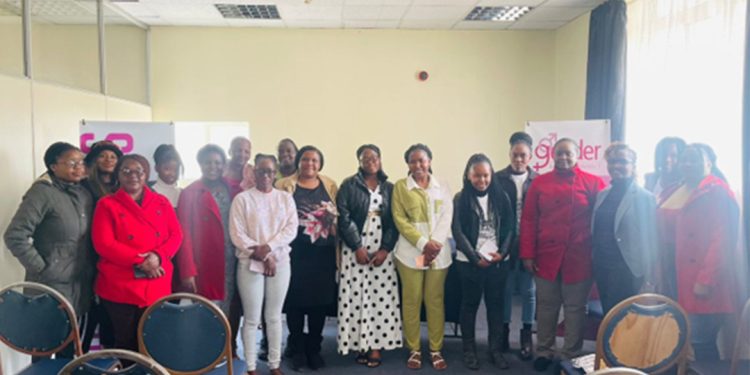Ahead of the August 2023 General Elections in Zimbabwe, Paradigm Initiative (PIN) and Gender Media Connect (GMC) have trained female journalists and female politicians on digital rights awareness.
The training which shed light on vital digital rights considerations ahead of the elections, afforded participants the opportunity to acquaint themselves with pertinent digital rights concerns.
Bridgette Ndlovu, PIN’s Partnerships and Engagements Officer, led the conversation by highlighting the escalating prevalence of internet shutdowns and bandwidth throttling across the African digital rights landscape.
Ndlovu noted, “Digital rights serve as an extension of human rights. The advent of digital technologies has revolutionized the exercise, protection, and infringement of fundamental rights. In Africa, alarming trends of digital rights violations encompass internet shutdowns, disinformation, misinformation, online gender-based violence, and hate speech. Remarkably, these issues have surfaced during electoral cycles as political entities strive to gain traction.”
The session elucidated the pivotal role of journalists in advocating for and reporting on digital rights violations. Ndlovu underscored this responsibility, expressing that journalists hold the key to creating awareness within communities about the challenges stemming from digital rights transgressions.
“As journalists, it is incumbent upon you to spotlight instances of digital rights violations, thereby elevating community consciousness regarding these concerns. Given Zimbabwe’s history of internet shutdowns, we are steadfastly committed to heightening awareness around digital rights, ensuring their due respect during the election period,” Ndlovu stated emphatically.
Moreover, Ndlovu pointed out the repercussions of violating digital rights during elections. She highlighted how such violations can detrimentally impact political campaigns, considering the integral role of social media in disseminating political messages.
Additionally, the erosion of digital rights could hamper the circulation of messages concerning civic participation, mis/disinformation awareness, and equitable access to information throughout the electoral process.

